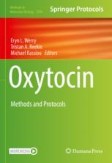Search
Search Results
-
COVID-19 Pharmacotherapy: Drug Development, Repurposing of Drugs, and the Role of Pharmacogenomics
The SARS-CoV-2 virus has been the subject of intense pharmacological research. Various pharmacotherapeutic approaches including antiviral and...
-
Target Discovery for Drug Development Using Mendelian Randomization
Making drug development more efficient by identifying promising drug targets can contribute to resource savings. Identifying promising drug targets...
-
Pharmacogenomics in Children
Historically genetics has not been considered when prescribing drugs for children. However, it is clear that genetics are not only an important...
-
Genetic Ancestry Inference for Pharmacogenomics
Genetic ancestry inference can be used to stratify patient cohorts and to model pharmacogenomic variation within and between populations. We provide...
-
Pharmacogenomic Screening of Drug Candidates using Patient-Specific hiPSC-Derived Cardiomyocyte High-Throughput Calcium Imaging
Calcium imaging is an invaluable technique to detect and characterize calcium flux in cells. The use of calcium dye provides information on the...
-
Artificial Intelligence and Quantum Computing as the Next Pharma Disruptors
Artificial intelligence (AI) consists of a synergistic assembly of enhanced optimization strategies with wide application in drug discovery and...
-
Artificial Intelligence–Enabled De Novo Design of Novel Compounds that Are Synthesizable
Development of computer-aided de novo design methods to discover novel compounds in a speedy manner to treat human diseases has been of interest to...
-
Has Artificial Intelligence Impacted Drug Discovery?
Artificial intelligence (AI) tools find increasing application in drug discovery supporting every stage of the Design-Make-Test-Analyse (DMTA) cycle....
-
Fighting COVID-19 with Artificial Intelligence
The development of vaccines for the treatment of COVID-19 is paving the way for new hope. Despite this, the risk of the virus mutating into a...
-
Application of Artificial Intelligence and Machine Learning in Drug Discovery
Machine Learning (ML) and Deep Learning (DL) are two subclasses of Artificial Intelligence (AI), that, in this day and age of big data provides...
-
Network-Driven Drug Discovery
We describe an approach to early stage drug discovery that explicitly engages with the complexities of human biology. The combined computational and...
-
Deep Learning in Structure-Based Drug Design
Computational methods play an increasingly important role in drug discovery. Structure-based drug design (SBDD), in particular, includes techniques...
-
Opportunities and Considerations in the Application of Artificial Intelligence to Pharmacokinetic Prediction
The improvement in the ability of the pharmaceutical industry to predict human pharmacokinetic behavior are attributable to major technological...
-
CRISPR/Cas9-Mediated Genetic Engineering to Generate a Disease Model Prairie Vole , Based on Species-Optimized Assisted Reproductive Technology
Social and prosocial behaviors, including communication, social bonding, and affiliation, parental behaviors, and empathy are key features of a...
-
The Importance of Experimental Investigation of the CNS Oxytocin System
This chapter provides an overview of the oxytocinergic system and its role in social behavior. We first consider the relationship between oxytocin...
-
Analysis of ER-Phagy in Cancer Drug Resistance
The ability of the cancer cells to survive hostile environment depends on their cellular stressCancer cellcellular stress response mechanisms. These...
-
A Fast and Furious Liquid Biopsy Assay to Monitor Targeted Therapy Resistance
Liquid biopsies represent a valid alternative to conventional tissue biopsies, offering a real time molecular picture of tumors in a minimally...
-
Polygenomic Interrogation of Drug Resistance Genes
Understanding drug resistance in cancer is paramount to improving patient outcomes, quality of life and reducing toxicities in patients receiving...
-
Establishment of In Vivo Acquired Resistance to Chemotherapy Via Individual Dose Escalation Treatment Regime
The vast majority of cancer deaths are the result of drug resistance. The lack of superior preclinical models that better reflect the complexity of...
-
Patient-Derived Breast Cancer Tissue Cultures for Anti-Endocrine Drug Assays
BreastCancerBreast cancer is a complex and heterogeneous pathology, characterized by a variety of histological and molecular phenotypes. The majority...
